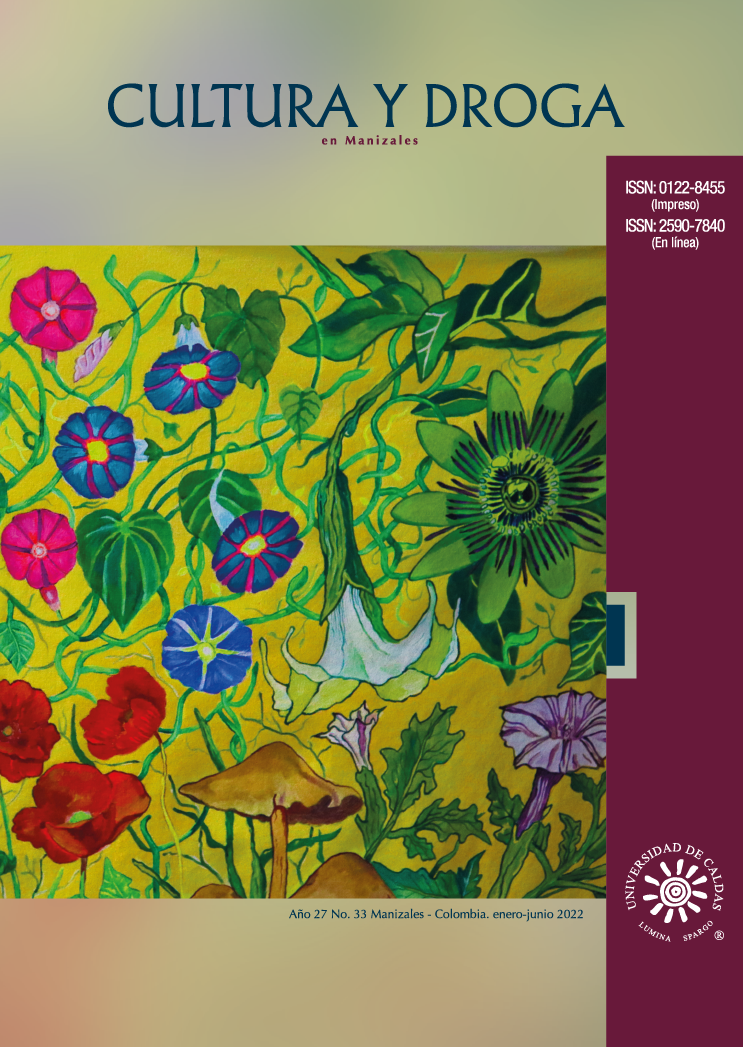Authors
Abstract
The expansion of the doctors’ offices adjacent to pharmacies (OAPs) in Mexico, the need to investigate how physicians prescribe medicines in these establishments has increased due to the inherent link between clinic and pharmacy, central characteristic of the OAPs. This article aims at describing prescribing practices in doctors’ offices adjacent to pharmacies located south of Mexico City, and analyze the determinants that influence them, as well as the meanings that physicians attribute to this activity. A qualitative methodology was used under which in-depth interviews and informal conversations that gathered the perspectives of 22 doctors on the prescriptive act. The factors that determine the criteria for prescribing, the existence of possible
conflicts of interest and the tensions-negotiations —between doctors, patients, dispensers and pharmacy owners— that are articulated around medicines are shown. The conclusions suggest that OAPs are spaces where actors with different interests and expectations converge but who share a reference in medicines, as a polysemic and multidimensional object-process. Likewise, it is concluded that these doctors’ offices fulfill a double function: to provide health care while, at the same time, becoming new markets for pharmaceutical consumption.
Keywords:
References
Becerril, V., Ortiz, M. y Santillán, J. (2018). Historia de la regulación de los medicamentos genéricos en México: 1977 a la fecha. Revista Especializada en Ciencias Químico-Biológicas, 21, supl. 1, 88-100. https://doi.org/10.22201/fesz.23958723e.2018.0.144
Busfield, J. (2006). Pills, power, people: sociological understanding of the pharmaceutical industry. Sociology, 49(2), 297-314.
Chu, M. & García-Cuellar, R. (2007). Farmacias Similares. Private and Public Health Care for the Base of the pyramid in Mexico. Harvard Business School, 1-26.
Colchero, A., Gómez, R., Figueroa, J. L., Rodríguez-Atristain, A. y BautistaArredondo, S. (2020). Aumento en la oferta de consultorios adyacentes a farmacias y atención en servicios públicos en México entre 2012 y 2018. Salud Pública de México, 62(6), 851-858. https://doi.org/10.21149/11547
Conrad, P. & Leiter, V. (2004) Medicalization, markets and consumers. Journal of Health and Social Behaviour, 45, 158-176.
Díaz-Portillo, S. (2017). Condiciones de trabajo en consultorios adyacentes a farmacias privadas en Ciudad de México: perspectiva del personal médico. Gaceta
Sanitaria, 31(6), 459-465. https://dx.doi.org/10.1016/j.gaceta.2016.10.013
Díaz-Portillo, S. (2017). Consultorios médicos adjuntos a farmacias privadas en México: condiciones laborales del personal médico y sus implicaciones en un posible conflicto de interés (Tesis de doctorado en Ciencias de la Salud Pública). INSP, México.
Dreser, A., Reyes, H., Serván, E. & Wirtz, V. J. (2015). Quality of antibiotic prescription in pharmacy retail medical clinics of Mexico City. Interscience Conference of Antimicrobial Agents and Chemoterapy (ICAAC) and International Congress of Chemoterapy and Infection (ICC), San Diego, CA.
Dreser, A. (2020). Política farmacéutica en la era Covid-19. La renovación del Sistema de Salud en la era Covid-19. Programa Universitario de Estudios del Desarrollo, UNAM. https://bit.ly/3uBlwzs
Rodríguez, R. (2019). Consultorios de farmacias, sistema de salud alterno. Opinión. Excélsior. https://bit.ly/3wMNIlG
FUNSALUD. (2014). Estudio sobre la práctica de la atención médica en consultorios adyacentes a farmacias privadas. Funsalud.
Greene, J. & Sismondo, S. (2015). Introduction. Sismondo, S. & Greene, J. (eds.) The Pharmaceutical Studies Reader. John Wiley & Sons, pp. 1-16.
Hardon, A. & Sanabria, S. (2017). Fluid Drugs: Revisiting the anthropology of pharmaceuticals. Annual Review of Anthropology, 46, 117-132. http://dx.doi.org/10.1146/annurev-anthro-102116-041539
Heraldo de México. (2021). Médicos de farmacia, en plan de vacunación contra Covid-19. El Heraldo de México. https://bit.ly/36EJlyp
INSP. (2018). Semana del uso responsable de los antibióticos 2018. Gobierno de México. https://bit.ly/3qJOdsX
Leyva-Piña, M. y Pichardo, S. (2012)- Los médicos de las farmacias similares: ¿degradación de la profesión médica? Polis: Investigación y Análisis Sociopolítico y Psicosocial, 8(1), 143-175.
López-Manning, M. y García-Díaz, R. (2017). Doctors adjacent to private pharmacies: the new ambulatory care provider for Mexican health seekers. Value Health Regional Issues. http://dx.doi.org/10.1016/j.vhri.2017.08.010
Morán, A. (2020). Una radiografía de los consultorios adyacentes a farmacias al sur de la Ciudad de México. Saberes de médicos y usuarios en torno a un sistema privado de atención (Tesis de doctorado en Antropología). CIESAS, México.
Pérez Cuevas, R., Doubova, S., Wirtz, V. J., Serván, E., Dreser, A. & HernándezÁvila, M. (2014). Effects of the expansion of doctors’ offices adjacent to private
pharmacies in Mexico: secondary data analysis of a national survey. BMJ Open; 4:e004669. doi:10.1136/bmjopen-2013-004669, pp.1-12.
Petryna, A. & Kleinman, A. (2006). The pharmaceutical nexus. En Petryna, Adriana; Andrew Lakoff y Arthur Kleinman (eds.) Global Pharmaceuticals. Ethics, markets, practices, Duke University Press, Durham.
Rubli, A. (2017). Low-cost, limited-service private healthcare providers: evidence from Mexico. Ponencia, Departamento de Economía de la Universidad Brown. https://sites.tufts.edu/neudc2017/files/2017/10/paper_341.pdf
Seeberg, J. (2012). Connecting pills and people: an ethnography of the pharmaceutical nexus in Odisha, India. Medical Anthropology Quaterly, 26(2), 182-200. DOI: 10.1111/j.1548-1387.2012.01200.x
Székely, A. (2018). Alerta en México: bacterias sin control. Animal Político. https://bit.ly/3Ka5UcZTimmermans, S. & Hyeyoung, O. (2010) The continued social
transformation of the medical profession. Journal of Health and Social Behaviour, 51, 94-106. DOI: 10.1177/0022146510383500
Tognetti-Bordogna, M. (2014). From medicalisation to pharmaceuticalisation- a sociological overview. New scenarios for the sociology of health. Social Change Review, 12 (2), 119-140. https://doi.org/10.1515/scr-2015-0002
Toscano, M. (2010). Antibióticos: responsabilidad de todos. El Universal. Opinión, http://archivo.eluniversal.com.mx/editoriales/49616.html
Ugalde, A. y Homedes, N. (2011) “Introducción. Las farmacias y los farmacéuticos, presente y futuro”, en Ugalde, A. y Homedes, N. (orgs.) Las farmacias, los farmacéuticos y el uso de medicamentos en América Latina, Lugar Editorial, pp. 9-21.
Van Der Geest, S., Reynolds White, S., & Hardon, A. (1996) The anthropology of pharmaceuticals: a biographical approach. Annual Review of Anthropology, 25, pp. 153-78. DOI:10.1146/annurev.anthro.25.1.153
Van Der Geest, S. (2006) New Release. Anthropology and the pharmaceutical nexus. Anthropological Quarterly, 79, (2), 303-314.
Wirtz, V., Dreser, A. y Heredia-Pi. I. (2013). Retos y oportunidades para el desarrollo de la política farmacéutica nacional en México. Salud Pública de México, 55, 329-336.

 PDF (Español)
PDF (Español)
 FLIP
FLIP
 Perfil Google Scholar
Perfil Google Scholar





















